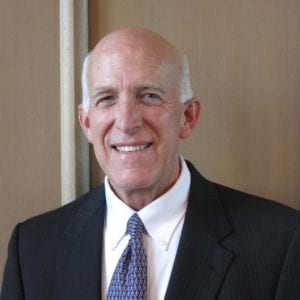
What to Say to Someone With Cancer
An experienced chaplain gives nine helpful suggestions for what to say.

Charlie Deridder
(Chaplain with Hope Has Arrived)
If you are reading this article, you are thinking about what to say to someone with cancer.
This says a lot about you and your character.
You probably know someone with cancer, whether a friend or a family member, and you may be wondering how you might be helpful out of genuine love and concern. This is very admirable.
People are often reluctant to speak with someone with cancer because they don’t know what to say—or worse, they fear saying the wrong thing, causing more pain in an already painful situation. For more on this topic, read my article, “What Not to Say to Someone who has Cancer.”
Our words matter
As a chaplain, I have personally known and walked alongside of hundreds of people who have faced cancer, including my wife.
Before sharing a list of what to say to someone with cancer, it is important that you prepare yourself for the conversation.
A note of preparation
First of all, you may not want to say everything mentioned below. Depending on the level of your relationship, or how willing the person is to share with you, and where he or she is at in their journey, what you say may not fit the conversation.
Secondly, be ready to listen. In fact, you must set aside your agenda going into the conversation. Your purpose should be to come alongside this person and help them know you care and they are not alone. Asking questions is a great way to let the person lead the conversation.
Also, release yourself from the expectation that you must try to fix the person’s problems. The reason is this: you simply cannot fix their situation. If you try, you risk doing more harm than good.
Are you ready? Here are some suggestions of what to say to someone with cancer:
-
I love you and I value this relationship.
It is really important to affirm the relationship because people diagnosed with cancer are going through a massive transition. They need confidence that their relationship with you has not changed and that they are not alone. If you are a friend, you could say something like, “I care about you and I treasure our friendship.”
If it is a close friend or family member, you could take it a step further: “I love you and want you to know that I will be walking right next to you through every tomorrow of our lives together.”
With a spouse, you could add something like, “I committed to love you through sickness and health. No matter where this journey takes us, I will be with you.”
-
How are you really feeling with this news of cancer?
Be prepared to hear everything possible, from anger to fear to shock to hopelessness. You have no idea what the person is thinking and feeling until you ask.
You may be tempted to try and bring some calm into the storm of your friend or family member’s life but very few of us have the ability to do that well.
Instead, listen and acknowledge their feelings and reaffirm that you care about what is happening to them. This can prove incredibly helpful.
-
What are some of the questions that have surfaced now that you have cancer?
This is a great question for what to say to someone with cancer.
Their whole life has just turned upside down and inevitably they will have questions like: What am I going to do now? Who do I need to talk to? How long am I going to live? Where is God in this?
Again, don’t feel like you need to have the answers. You are present for support—not to solve all problems or provide all answers. Accept the questions the person raises. Affirm how weighty, perplexing and unnerving their new questions are, allowing them to speak them out loud without you feeling obliged to answer. You are practicing being a good listener.
-
I am sad that you have cancer.
Start by saying, “I care about you and what happens to you matters to me.” Then you can tell them that you are sad. Saying you are sad is more appropriate than saying you are “sorry” because sorry may imply a wrong has been committed.
This is not the time for an apology but instead a time to let them know just how much they matter to you through an honest statement about the depth of your own emotions.
You could also say: “More than sad, I just ache in the pit of my stomach when I hear about what is happening to you. I ache, and I want you to know that because you matter so much to me”.
-
What do you think may change now that you have cancer?
Change is inevitable with cancer. A person with cancer is going through a transition in life, from being healthy to now being sick, from being self-sufficient to being needy and dependent. It is important for people with cancer to have the opportunity to process this change with someone. Saying it out loud brings clarity to their thoughts. You may be just the right person with whom they feel safe enough to do that.
-
Did your diagnosis open up any new fears you never had to face before?
Give people the opportunity to name their fears, because speaking them aloud may prove helpful in disarming them.
Some people may not want to admit they are afraid, so allow them to opt out of this question. If they want to talk, you could ask, “What words would you use to describe your fear?”
Maybe they fear physical changes like loss of hair, looking thin and frail, muscle weakness, depleted energy levels and the like. Or they are scared they’ll lose hope. If they have faith, maybe they worry that God is not going to help them, or they will lose their faith in the process.
-
How or where can you find hope, strength and peace on your journey?
This is an important question of what to say to someone with cancer, because you are inviting them to share about where they find hope at a critical time. Maybe it is spending time with their most important relationships, doing things they love or leaning into their faith.
You are helping them rediscover some things they already know about hope and by verbalizing it they are reminded of them.
-
May I affirm some important things about hope? May I also affirm some things we have both come to believe about God?
With this, you ask for permission to share some hopeful thoughts with them. If they are a person of faith this will be a conversation that brings a mutual benefit as you both feel the encouragement of remembering and reaffirming what you believe about God.
There is a big difference between telling them these thoughts and asking permission to do so. You will notice that this request for affirmation is near the end of the list of what could be said to someone with cancer. This is not where you should start in what to say to someone with cancer. It leads to an essential part of the conversation.
-
How may I pray for you?
If they are a person of faith, this is one of the most helpful actions you can take on their behalf – to lift them up before God and ask Him to give them hope, strength and peace. The book of Matthew in the Bible reminds us how powerful praying together can be, that God will be there, too (Matthew 18:20). Even if the person doesn’t have faith, you would be amazed how many people still appreciate prayer.
Conclusion
Let me affirm that our role is to walk alongside people and to care for them in their suffering. We must keep the focus on them, not us. It is important that we not try to fix them or fix their problem, because ultimately, we can’t do it anyway.
We need to release them and their circumstances to God—without abandoning them ourselves, confident that even while facing challenging circumstances, anyone can experience a powerful sense of hope, strength and peace.
Again, you are an admirable person for thinking thoughtfully about what to say to someone with cancer. Your friend or family member will be very grateful that you took such a warm-hearted interest in caring for them in this time of need.
Help to Do It Well
If you feel you need more help with what you should say to someone with cancer, read my other article, “What Not to Say to Someone Who Has Cancer.”
You can also find help with what to say by Asking God for Help.
Charlie Deridder served as a chaplain for the Veterans Administration for more than 10 years, where he helped start an initiative called, No Veteran Dies Alone. Currently a registered chaplain with the Evangelical Free Denomination, he has personally known and walked with hundreds of people who have faced cancer, including his wife. He is convinced that all patients facing cancer have the opportunity to experience great hope, strength and peace. You can send him questions or comments here.
I have a question or comment
How to find God’s hope, strength and peace
Note: We are not doctors and we cannot answer your medical questions. However, we welcome your questions about finding hope and knowing God.
